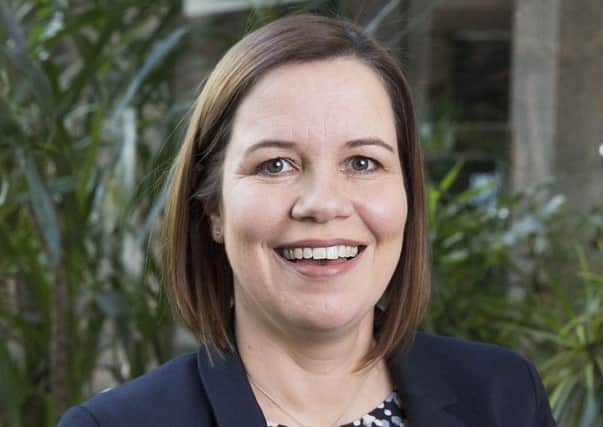Geraldine Kelm: Freelancing the way ahead if you seek work flexibility


The way lawyers work is changing, firms are structured in different ways and technology is taking over some aspects of the job – with artificial intelligence (AI) systems which can tackle the analysis of large amounts of documentation, understand language and answer questions, slowly but surely being introduced.
As part of this evolution, contract or freelance lawyering has grown in popularity, with many firms setting up freelance lawyer hubs. Pinsent Masons was one of the first to recognise the need for more flexibility for our clients and staff and our Vario freelance model, established in 2013, has grown by 30 to 40 per cent in each of the last three years. Over that time, through a continued focus in Scotland, we have built a substantial bench of high quality Scottish legal professionals.
Advertisement
Hide AdAdvertisement
Hide AdPart of this evolution has been the huge growth of the gig economy, which is based on a desire for more flexibility. Businesses want a scalable and adaptable workforce and consumers or clients want services which are delivered quickly and efficiently, but with a large dose of flexibility.
For the legal services market this is no different and contract lawyering has been established as a solution to this desire for more flexible working from lawyers, but also to fulfil a need from clients to have a dedicated legal resource which sits in-house when it’s most needed.
The appeal of contract lawyering for modern law professionals is clear – it enables an increased flexibility in choosing both the type and amount of work – while a healthy work/life balance remains a strong motivator behind why people choose to work as contract lawyers.
A Vario survey revealed 42 per cent of lawyers expect their work/life balance to improve upon going freelance, but the top motivator (45 per cent) is a desire for more variety in their work. The vast majority (84 per cent) now see freelancing as a long-term career option, while 51 per cent wish they’d made the change far earlier in their career.
Almost 90 per cent of those surveyed believe their quality of life has improved since becoming a Vario. In this hectic world, where people are working longer hours than ever, an increasing number of lawyers crave a more varied, quality workload which allows them to work flexibly and pursue other interests – as is the case with a good number of our Varios who also run their own businesses or live abroad.
We have a broad range of lawyers on the books, from the newly qualified to very senior, and what they all have in common is a great combination of soft and hard skills. Parachuting into a client’s business and being expected to perform from day one requires solid technical expertise, but just as important are softer skills, such as being able to connect with people quickly and to be able to show emotional intelligence.
Part of Vario’s recruitment process, which feeds into how we place lawyers, is a rigorous personality testing process, developed by business psychologists. This ensures we’re not only recruiting the right type of people who will perform well under pressure, who are flexible and have fantastic people skills, but also that we can match the right lawyer to the right client.
What sits behind much of this freelance law revolution and the growing number of lawyers working remotely is the rise of technology, with cloud-based systems enabling contract lawyers to live abroad, but still be working for UK-based clients . For example, our team of computer scientists and legal engineers have devised SmartDelivery, a suite of tools which has brought AI to life for our lawyers and clients by driving efficiency, reducing billing time and fast-tracking decision making.
Advertisement
Hide AdAdvertisement
Hide AdAI provides to clients a more consistent approach to complex matters which creates a more certain outcome. The systems are able to review a huge number of documents and to reduce costs, while providing greater transparency on the status of ongoing litigation, which allows clients to monitor progress and to manage budgets.
The legal profession is not one which can usually claim to be leading the way when it comes to innovation, but contract lawyering, coupled with state-of-the-art technology, is evidence that evolution, if not revolution, is underway.
Geraldine Kelm, account director, Vario